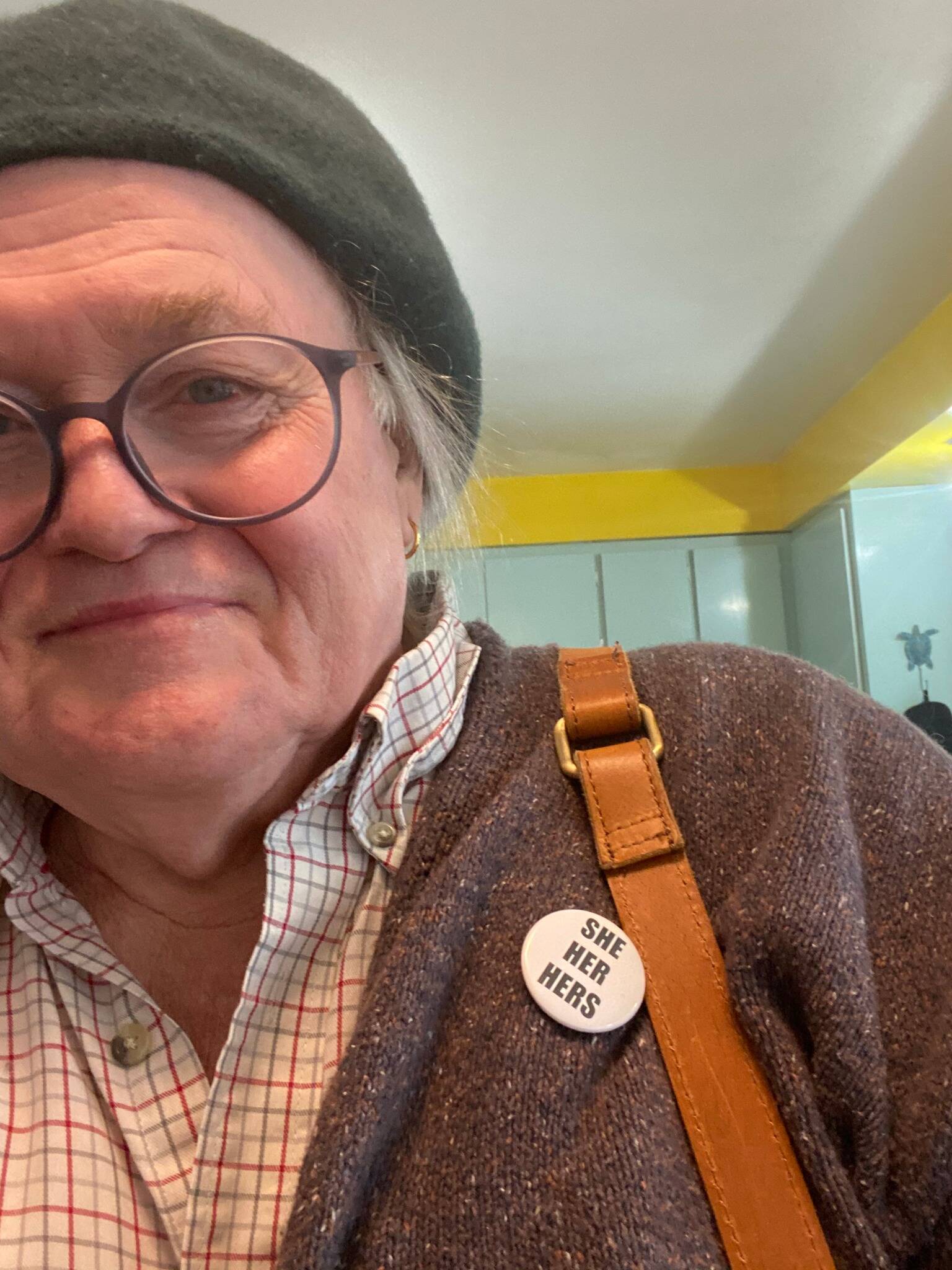“O I have suffered with those that I saw suffer!” — Shakespeare
“I am the man, I suffered, I was there.
Agonies are one of my changes of garments.” — Walt Whitman
In a recent op-ed piece in the New York Times, Iszac Henig, a transgender swimmer on the Yale swim team, writes, “what seems to be missing from that conversation [about trans athletes] is our humanity.”
Despite the vast difference in our ages and swimming abilities, I feel some affinity with Mr. Henig, because the pandemic gave both of us the impetus to come out. And I think his comment about trans athletes is often true of the conversations — on all sides — about transgender experiences in general.
Such conversations can often be more jargon than substance, more politics than compassion. The overriding goal of these columns is to toss into the fray the substance of my own experience as an exasperatingly human response to experiences we all face, the same fears and desires and anxieties and joys we all go through, whatever our thoughts about gender, whatever our sexuality, whatever our age or circumstance. Stuff we all suffer and suffer through.
“Suffer” is an interesting word. It means to experience some sort of pain or deprivation, of course, but it also means simply to experience something generally, as in Shakespeare’s line, “to suffer a sea-change” and the cliché “she does not suffer fools gladly.” It means to just endure an experience, to go through it, to deal with it.
The two meanings of “suffer” collide in two very different ways of looking at experience. First, those two meanings can come together to suggest that life is suffering, that to experience anything is to experience pain. As Dylan sings, “Behind every beautiful thing there’s been some kind of pain.”
But looked at another way the two meanings of the one word can suggest the more uplifting view that we can endure the pain we experience, we can get through it, we can deal with it. To quote another great musician, the King of the Blues: “I’ll survive.”
In 2018 I had to suffer (in both senses) open heart surgery to replace a deformed aorta valve. The great lesson of that experience for me was that I was not the only one suffering — that is, enduring — that ordeal and suffering pain.
After the initial surgery, I had to have a second surgery two days later, and when I woke from the anesthetic, I was in a terrible but vociferous mood. I hadn’t eaten solid food in close to two days, and the nurses tried feeding me hospital food, while I had to stay completely reclined.
I tried to choke down a horrible piece of dry over-cooked salmon and was practically in tears. I shoved the food tray away from me. (Actually I wanted to throw the whole damn tray, food and all, across the room at the piece of crap art that decorated the wall.) (Pain is one thing, but subjecting patients to lousy art? Hippocrates would be horrified.)
My partner was watching all this — in tears to see me suffering, enduring through my suffering and experiencing her own pain.
And I realized that we were all suffering through this — my wife, my kids, my sister, my old college buddy on the other side of the country, my friends back in Juneau. My suffering was merely the focal point, the thing all were watching intently, but we were all going through this together, all suffering and trying to endure. In some ways, their ordeal was greater than mine.
This transition too: it isn’t mine, or not mine alone. It belongs to my family. It belongs to my friends–the ones who were no doubt befuddled at first and probably still are.
“What??? Jim Hale? Trans? Are you kidding me? You’re blowing my mind here. But, you know, come to think of it, he always was a bit of an oddball.”
And it belongs as well to those of you who don’t know me, but are thinking: “Oh god, not another one!”
Yes. Another one.
But let me give you this:
Aristotle identified three ways that a writer can appeal to her readers. First, there’s the rational appeal, giving readers reasons, evidence, logic. Aristotle was a rational guy and liked this one best of all.
He also acknowledged an emotional appeal, ways of circumventing the logical mind and going instead for the gut.
And he identified what he calls the “ethical”appeal: anything the writer does to establish a good rapport with her audience, to let readers know that she thinks well of them, so they take her argument seriously, even if they may not agree.
Reader, this column is my ethical appeal to you that the conversation about gender not ignore the humanity we share.
• Jane Hale lives in Juneau with her partner and their two dogs. “Coming Out” appears biweekly on the Empire’s neighbors page.

